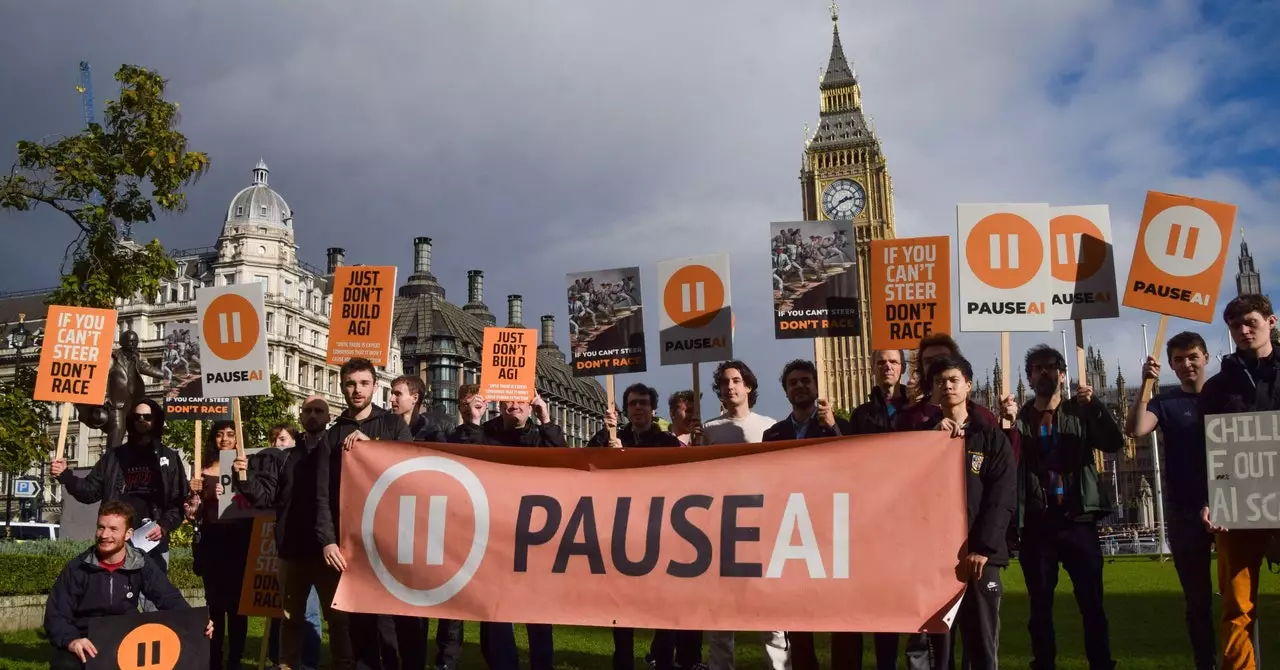The advancement of artificial intelligence (AI) technology has sparked concerns among a growing number of individuals who believe that the potential risks associated with AI systems could threaten human existence. Inspired by the ideas presented in Nick Bostrom’s book, “Superintelligence,” activists like Joseph Miller have taken to the streets to advocate for a pause in the development of AI. These individuals are not only motivated by the fear of future consequences but are also concerned about the ethical implications of AI technologies on society as a whole.
While many of the activists involved in the PauseAI movement have backgrounds in the effective altruism community, they are determined to reach a wider audience and garner support from individuals across different sectors. Holly Elmore, the Director of Pause AI US, envisions a movement that includes artists, writers, and copyright owners who are directly impacted by AI systems that can replicate creative works. By expanding the reach of the movement, advocates hope to raise awareness about the lack of consent in the production of AI models and encourage more action to address these ethical concerns.
One of the key arguments put forth by supporters of the PauseAI movement is the need for a comprehensive solution that addresses the various harms associated with AI technologies. From the impact on artists whose livelihoods are threatened by AI-generated content to the broader implications for society, advocates make a compelling case for a temporary pause in the development and deployment of advanced AI systems. By highlighting the real-world consequences of unchecked AI growth, activists like Joseph Miller underscore the urgency of taking action now to prevent further harm in the future.
As protesters take to the streets to raise awareness about the risks associated with AI technology, they draw parallels to past movements that successfully influenced public opinion and policy decisions. Gideon Futerman, a London protester, points to historical examples like the backlash against genetically modified organisms and nuclear power as evidence that popular protests can shape the trajectory of new technologies. By engaging with civil servants and government officials, activists hope to spark a dialogue about the ethical considerations surrounding AI and encourage policymakers to take action.
Despite their concerns about the impact of AI on society, leaders of the PauseAI movement emphasize the importance of using moderate tactics to advocate for change. While some activists may consider more disruptive forms of protest, such as sit-ins or encampments near AI offices, the current focus remains on peaceful advocacy and raising awareness. By maintaining a moderate stance, organizers aim to build trust and credibility within the broader AI ethics community while also positioning themselves as a reliable voice for ethical AI development.
As the PauseAI movement gains momentum, its founders are optimistic about the potential impact of their advocacy efforts. While acknowledging the challenges ahead, activists like Meindertsma remain hopeful that their movement can shed the “AI doomer” label and instead become a catalyst for positive change. By raising awareness, engaging with policymakers, and mobilizing a diverse group of supporters, the PauseAI movement aims to shape the future of AI development in a way that prioritizes ethical considerations and human welfare.


Leave a Reply
You must be logged in to post a comment.